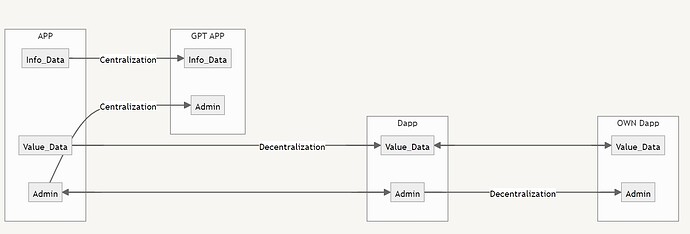The development of the Internet has brought various centralized applications that facilitate value exchange for users. These applications support asset delegation, where users need to trust the applications and delegate their assets for management, such as PayPal, Coinbase, and others. However, with the emergence of blockchain technology, decentralized features were achieved through designs like Bitcoin’s consensus mechanism, enabling asset transfers without the need to delegate assets to applications. This concept of “own asset” allowed users to truly own their assets.
Similarly, smart contract platforms like Ethereum enabled the decentralization of applications, resulting in the birth of decentralized applications (Dapps). However, to date, when users interact with Dapps, they still need to trust them and delegate or authorize their assets. For example, third-party applications like Uniswap and Opensea.
To further achieve decentralization and disintermediation, it is necessary to allow users to directly interact or transact within their Dapps without delegating or authorizing assets to third-party Dapps. When intermediaries are eliminated, users truly own their applications. This is where the concept of Own Dapp comes in. Own Dapp refers to Dapps owned and managed by users, where the state and data storage are controlled by the users themselves. Own Dapp provides a new way of interaction, allowing users to interact more securely, free from intermediaries, and offering more programmable application options.
Account Abstraction introduced a new account model in Ethereum to provide greater programmability and scalability. It allows users to use smart contract accounts and set validity conditions for transactions based on customized validation logic, extending beyond the functionalities of EOA accounts. It improves and optimizes identity verification, transaction signing, and other functionalities.
Account abstraction provide programmability. We believe users need more than just account abstraction functionality, enabling users to have their own Own Dapp on the thier platform, It’s what we want to achieve.
Super Dapp is a way for users to have multiple Own Dapps and effectively manage them. Each user can freely add, delete, and update their Own Dapps, and these applications can be combined and modularly managed as needed.
The Super Dapp provides a user-friendly interface and functionalities that enable users to easily manage their Own Dapp.
At the same time, to ensure the quality and security of Own Dapp, we introduces the concept of a Dapp Store. The Dapp Store is an application store where users can access Own Dapp that can be added to the Super Dapp. Similar to the iOS App Store, Dapp Store only allows the addition of audited own Dapp.
In summary, Super Dapp is a platform for users to manage and customize their Own Dapp, which are personalized decentralized applications created and owned by users themselves. The Super Dapp provides a user-friendly interface and functionalities for managing multiple Own Dapp in a modular manner.
